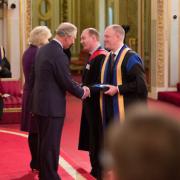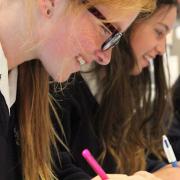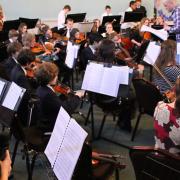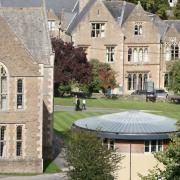First off, it is confusing - and there is no substitute for doing your homework. Independent senior schools offer scholarships to attract able pupils and raise standards: those pupils will perform well and inspire others.
Education Life
With the plethora of scholarships now available, King’s College Taunton headmaster Richard Biggs helps navigate through the often bewildering world of scholarships
First off, it is confusing - and there is no substitute for doing your homework. Independent senior schools offer scholarships to attract able pupils and raise standards: those pupils will perform well and inspire others. The rewards for the scholars are twofold: there is the honour of being a scholar, perhaps of being identified for a special scholars’ programme, and, in most cases, a financial benefit through fee remissions. Prep schools, too, gain immense satisfaction from their scholarship successes as a glance at the honours’ boards confirms.
Every independent school offers academic scholarships. For applicants coming from traditional prep schools at 13 the testing will either be through the ISEB’s Common Academic Scholarship Examinations (CASE), which are the scholarship version of Common Entrance, or the senior school’s own version. The candidates sit papers in maths, English, the sciences, a language, history and geography. Some also expect or allow papers in Latin and religious studies. Most will require a verbal reasoning test. For those not coming from Common Entrance schools allowance is made, either by way of alternative exams or, as in our case, in the sensitive interpretation of the results. One way or another, schools want to identify and reward future academic high-fliers.
Unfortunately, senior schools hold their scholarship exams at times which can vary from January to May, making it possible to enter for more than one and creating a problem for prep schools: scholarship classes end up with some pupils having finished their exams, others still preparing.
But academic scholarships are not the end of the story. Most schools offer awards in a range of disciplines: music and art are pretty much universal and sport and drama are common. We offer a scholarship in design technology. Many schools offer an all-rounder award to recognise ability in a range of disciplines.
Music is tested by audition, art through a practical exercise, sport through a coaching session, drama by audition and some sort of workshop. All schools will interview candidates and all will, of course, take into account references, grades achieved and portfolios of past work. Details of what each school expects are on websites and in prospectuses.
Recently there has been growing pressure on independent school heads to shift more of their remissions budget away from scholarships towards means-tested financial assistance, as a way of improving access to the school. Some schools, particularly those nearer London, means test all their scholarships, so some recipients gain no financial benefit, only the accolade. In the West scholarships remain, on the whole, quite substantial and can be as high as 50%. Our standard full scholarship award is 20%, and we offer a few exhibitions (minor scholarships) of 10%. I don’t like the idea of a family needing a child to get a scholarship in order to afford the fees. That seems to me to place unfair pressure on the child and I would rather we looked at finances and what we might do to help and make it possible before the exams.
Most children will be expertly prepared by experienced teachers for their scholarship exams. But there is more that you can do: we are looking for more than just good exam results. I want to see a spark of excitement and enthusiasm and individuality. And not just in the academic scholars: art candidates should be able to speak passionately about what they have seen in galleries, musicians about their favourite composers, sportsmen and women about the big issues in sport. Museums, galleries, plays, concerts, plenty of reading...you can help your child to develop a wider and genuine interest which will certainly count in their favour.
But scholarships are not for everyone. Think carefully about whether it is a good idea to put that sort of pressure on your child. Good academics will end up in top sets and get top grades whether they are scholars or not. Good schools will teach all pupils well and encourage them to achieve their very best. Good artists will produce good art and good games players will end up in A teams.
If you do want to go down the scholarship route then you will need to register and enter your child for the appropriate testing in good time. In all cases testing will be at the senior school at some time during the two terms preceding entry. References will be required - usually from the child’s present school, but you may want to add references from sports coaches, speech and drama teachers and so on. And don’t forget the galleries and the reading!


























